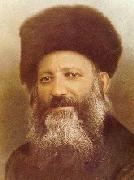
Normal People Think Ahead (1992)
Weekly Parsha Commentary by Binyamin Zev Kahane
Translated by Lenny Goldberg
On the verse in our parsha, "If a thief be found breaking in, and be smitten that he die, there shall be no blood shed on his account", Rashi brings down a gemorah that is certain to shock liberal Jews: "If one comes to slay you, arise and slay him first. And this man (the thief) indeed came to kill you, for behold, he knows that one will not stand there and quietly watch his possessions being stolen. Therefore, the owner, having this in mind that the thief is prepared to kill him, should arise and slay him first."
Absolutely amazing! In other words, the sages are telling us here that the rule, "if one comes to slay you, slay him first" does not exclusively apply to the situation where one has a knife being held to his throat. In the above Rashi we see a much more expanded application of this simple "halacha". We see that one is obligated to think a few steps ahead and anticipate what the likely result will be. If one sees a real potential that this person will slay him, this in itself requires one to "arise and slay him first". What the sages have done here is to enter the psyche of the housethief, who, knowing the likelihood of resistance, has prepared himself to kill the owner if necessary. The knowledge of the owner that the thief is ready to kill him, even if only potentially, allows him to kill the thief first.
How we have distorted the concept of "if one comes to slay you, arise and slay him first"! The average "moderdox" Jew thinks that one can only rise up and slay the Arab who is caught in the "pose" of throwing a molotov cocktail, or one is yelling "Allah Achbar" as he chases his victim with a hatchet. He believes that if the danger is not this very instant but rather one hour from now or one week from now, than certainly the law does not apply. What was obvious to the sages, that one must think a few steps ahead and not "stand there and quietly watch his possessions being stolen", is not obvious in todays society where "humanism" and distorted concepts of morality run rampant.
In Israel, Jews continue to passively accept being beaten and humiliated by our enemy, lacking the healthy and normal survival instinct to "arise and slay him first". This self-restraint is justified by the logic that the situation is not life-threatening. And so, soldiers and settlers shoot warning shots in the air after being attacked, since the danger, as they see it, is no longer imminent. According to I.D.F. guidelines, soldiers, upon seeing a terrorist must shout a warning, shoot in the air, and if the situation really gets hot, shoot at the legs. Only a Jew already dead is permitted to open fire, since one who reacts beforehand will find himself brought to trial on murder charges.
In short, we have learned two important ideas. Firstly, the rule, "if one comes to slay you, arise and slay him first", is not limited to a situation where one is pointing a gun to your head, but rather one is permitted to anticipate potential danger to one's life. Secondly, only a nation void of any self-respect won't rise up and fight back. After all, the above Rashi deals with fighting back for one's property. Shouldn't it be all the more so when one's life is being threatened?
We must cease to interpret and define the "halacha" according to what is comfortable to our western mentality and mind set. We must "rise up", as one rises early for the "vatikin" prayer, and think a few logical steps ahead so that we can kill the murdererous trespasser before it is too late.






